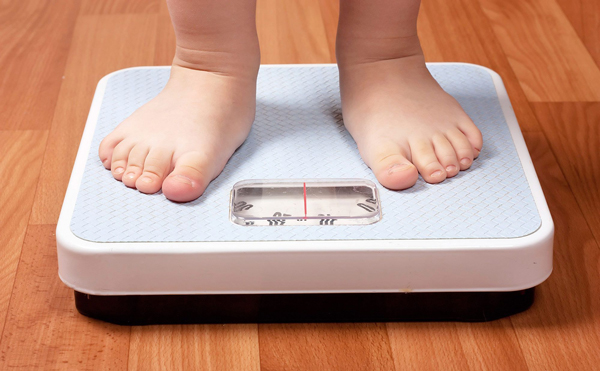Natural Family News and Research
Overweight Only Children
 Nicole King, Managing Editor, The Natural Family: An International Journal of Research and Policy
Nicole King, Managing Editor, The Natural Family: An International Journal of Research and Policy
The News Story: Only Children—Good for Parents and Kids? |
|
(Sources: Kellie Scott, “Is one enough? Why having an only child can be good news for mum, dad, and the little one,” August 22, 2017, http://www.abc.net.au/news/2017-08-21/parents-of-only-children-judged-despite-evidence-of-benefits/8789592.)
The New Research: The Weight Problems of Only ChildrenWhether because of government policy or cultural trends, a growing fraction of the world’s children are growing up without siblings. If their parents invest heavily in their upbringing, these only children may enjoy some economic advantages over peers with siblings. But growing up without a brother or sister entails significant drawbacks, one of which was recently highlighted by a Japanese study finding that only children are distinctively vulnerable to weight problems during childhood and early adolescence. Affiliated with Tokyo’s National Institutes of Biomedical Innovation, Health and Nutrition, the authors of the new study express concern about the number of Japanese children with weight problems: “approximately 10% and 8% of 12-year-old boys and girls, respectively, were overweight or obese in 2015.” Though these percentages are down a bit from what health officials saw in 2000, when they began addressing the problem, the authors of the new study still regard them as “substantial.” Childhood obesity is hardly peculiar to Japan. The researchers see “Japan follow[ing] the global trends,” with “the prevalence of childhood overweight and obesity increas[ing worldwide] in the late 20th century,” pushing the number of preschool children who were overweight or obese in 2014 to approximately 41 million. But whether they are looking at Tokyo or Toronto, the researchers stress that “prevention of childhood overweight and obesity is an important public health issue. Excess weight in children may negatively affect their lifetime health, increasing the risks of obesity in adulthood and consequent premature mortality and morbidity from non-communicable diseases.” To determine what home circumstances affect childhood obesity, the researchers pore over data collected for 43,046 children born in Japan during two weeks in 2001 who were surveyed annually from 2.5 to 13 years of age. These data reveal a pattern that should unsettle public-health officials not only in Japan but also all of the many other industrialized nations experiencing a birth dearth: “Children living with no siblings had significantly higher odds of overweight and obesity compared with those living with siblings at 8 years and older in both sexes” (Odds Ratios range from 1.47 to 1.75—depending on age group—for boys, from 1.42 to 1.75 for girls). The researchers interpret their findings against the backdrop of several studies from around the world likewise finding “an increased likelihood of overweight and obesity among children living with no siblings.” These studies reveal that living without siblings exposes children to “obesogenic behaviors and environments at home.” The Japanese scholars note—for instance—that previous studies in Australia and Canada have established that, “compared with children with siblings, those without siblings spent more time in low-intensity physical activity each day and less time in moderate-to-vigorous-intensity physical activity.” The Japanese researchers also point to an earlier American study concluding that, “compared with children living in families with two or more children, only children were more likely to have a television in [their own] bedroom, spend over an hour in front of screen per day, and eat a meal infrequently with all the family members living in the household.” Having learned a good deal from their colleagues in other countries, the Japanese researchers interpret their own findings as evidence that “to effectively prevent childhood overweight and obesity, policymakers tasked with developing environmental strategies for improving lifestyles of children should consider . . . the influence of siblings.” But children can feel the beneficial influence of siblings only when their parents bring more than one child into the world. In Japan and other baby-bust nations, too few children enjoy the advantage of that influence.
(Source: Bryce Christensen and Nicole M. King, forthcoming in The Natural Family. Study: Navu Ikeda, Kana Fuse, and Nobuo Nishi, “Changes in the Effects of Living with No Siblings or Living with Grandparents on Overweight and Obesity in Children: Results from a National Cohort Study in Japan,” PLOS One 12.4 [2017]: e0175726, Web.) The International Organization for the Family, Religion & Society, 934 North Main Street, Rockford, Illinois 61103 (815) 964-5819 Read more → at The Natural Family: An International Journal of Research and Policy |



 An Australian ABC affiliate recently ran a story meant to assuage any fears that parents who choose to have only one child may harbor regarding their children’s well-being. Parents interviewed for the story believed that by having only one child, they were able to afford better schooling, and had more time to devote to that child’s well-being. They were also able to pursue more leisure time for themselves, and more time in fulfilling careers, which they assert makes them better parents. But research reveals that no amount of private schooling and one-on-one time with parents can obliterate at least one negative outcome for only children—physical health.
An Australian ABC affiliate recently ran a story meant to assuage any fears that parents who choose to have only one child may harbor regarding their children’s well-being. Parents interviewed for the story believed that by having only one child, they were able to afford better schooling, and had more time to devote to that child’s well-being. They were also able to pursue more leisure time for themselves, and more time in fulfilling careers, which they assert makes them better parents. But research reveals that no amount of private schooling and one-on-one time with parents can obliterate at least one negative outcome for only children—physical health.


